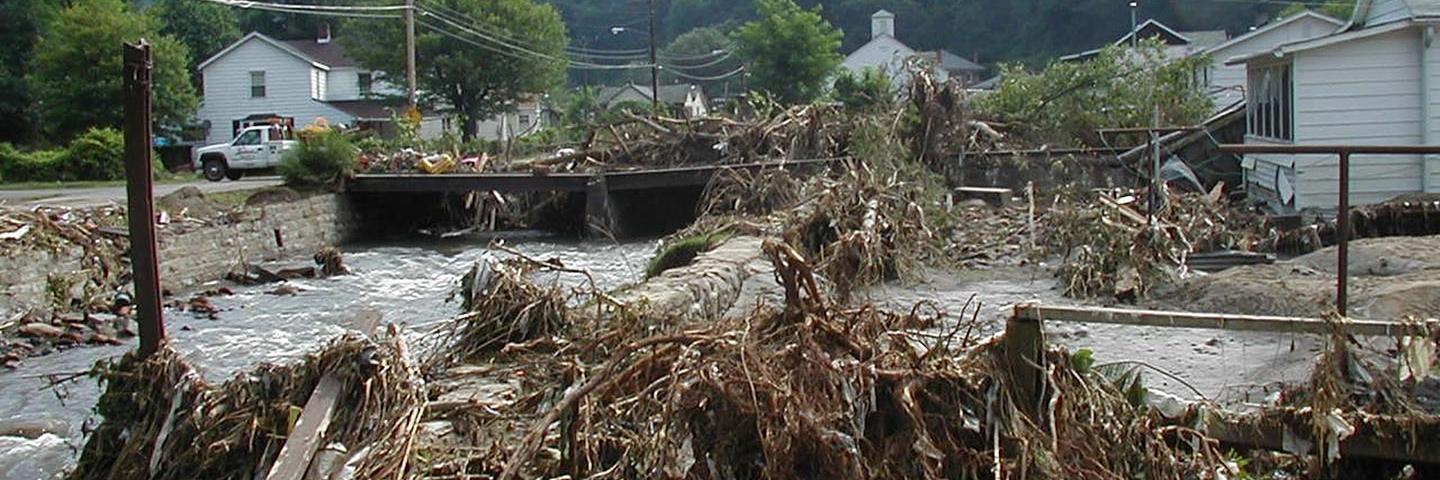NRCS Floodplain Buyouts Offer Options for Flood Prone Lands in West Virginia

While beautiful, parts of West Virginia’s rugged landscape are especially flood prone. There are towns in these floodplains where residents are at risk of losing property, life savings, their lives due to flash floods.
The Natural Resources Conservation Service (NRCS) Watershed Programs has the authority to purchase flood-prone homes through voluntary floodplain buyouts to keep homes from being rebuilt in flood-prone areas. This lessens the effects of future disasters and potentially saves lives, property, and money. “Prior to receiving help to weather flooding events, residents would have to ride out the storms, risk losing their property and life savings,” says Pam Yost, NRCS State Economist. “Today, there are options. The Natural Resources Conservation Service has one of the best programs to offer relief to towns experiencing frequent flooding.” A home’s appraisal is based on its pre-flood disaster value ensuring that homeowners can recover their investment and be made whole in the event of a devastating flood. NRCS works with local sponsors (typically local government agencies, tribal organizations, or conservation districts) to purchase properties when it proves to be the best option to prevent future flood damage.
For example, McDowell County’s Elkhorn Creek/Tug Fork River Watershed is one of those vulnerable, flood prone areas.
Residents experienced repeated flooding due to steep topography, rapid runoff, narrow floodplains, and concentrated residential development in the valleys. In the last four decades, there have been at least 17 federal disaster declarations in the county.
Traditional flood mitigation methods such as dams, floodwalls, stream realignment, dikes or other structural options are too expensive or ineffective. So, thirty McDowell County homeowners were offered voluntary buyouts and twenty-seven accepted.
“This project is a shining example of the undaunted effort and collaboration of the community along with NRCS to help their towns not only survive but thrive. No one wants to lose their home or leave friends and family – these voluntary buyouts offer a lifeline when there isn’t a viable alternative,” said Steve Baker, Acting NRCS State Conservationist, West Virginia.
Many problems attributed to constant flooding are resolved through the voluntary buyouts including reduced home damage, less flood debris and lower cleanup costs, improved water quality, resident safety, reduced emergency services, improved potential for recreational use and improved stream habitat and watershed resiliency.
The bedrock of NRCS Watershed Programs is to safeguard lives and property. The Emergency Watershed Protection Program has streamlined the process to make it even easier for communities to consider buyouts as an option. EWP assistance begins with a request from the local sponsor – once it is determined that the project is eligible – funds can be allocated as funds remain available. For further information, contact your local NRCS EWP Program Manager.

